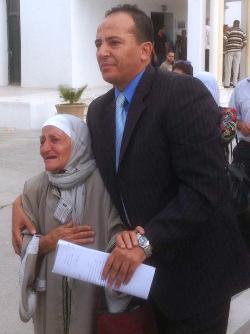24 Oct 2011 | Middle East and North Africa, News
 Tunisians flocked to voting stations yesterday in the country’s first-ever free elections, but only the cultivation of an independent media will safeguard democracy and free expression, writes Rohan Jayasekera
Tunisians flocked to voting stations yesterday in the country’s first-ever free elections, but only the cultivation of an independent media will safeguard democracy and free expression, writes Rohan Jayasekera
(more…)
17 Oct 2011 | Index Index, Middle East and North Africa, minipost
Thousands of demonstrators took part in an anti-censorship march in the Tunisian capital on Sunday. As the debate between Islamic conservatives and secularists continues in the country, the liberal demonstrators gathered for the march, dubbed “Aataqni” or “set me free” in Tunisian Arabic. The movement follows opposing protests last week, after the decision by Nessma TV to air the film Persepolis. The demonstrators at the Aataqni protest were alarmed by the reaction of the Islamists to the animated film, claiming if that kind of censorship was accepted, it could lead to censorship of other programs.
11 Oct 2011 | Index Index, Middle East and North Africa, minipost
Hundreds of protesters have attacked a private television company in Tunisia in protest over the broadcast of the award winning film “Persepolis.” The protesters, who believe that the animated film denigrates Islam, attacked the TV station Nessma in Tunisia’s capital on Sunday. Police used tear gas to disperse the crowd and made 40 arrests. The film, which is about the 1979 Iranian revolution, was aired on Friday. Following the broadcast, according to Nebil Karoui, the head of Nessma, messages appeared on Facebook calling for the station to be burned down and its journalists killed.
30 Sep 2011 | Middle East and North Africa, News

Police commissioner Samir Feriani has been acquitted of “harming security of state” after criticising continued role of Ben Ali-era security officials. Index on Censorship reports
(more…)
 Tunisians flocked to voting stations yesterday in the country’s first-ever free elections, but only the cultivation of an independent media will safeguard democracy and free expression, writes Rohan Jayasekera
Tunisians flocked to voting stations yesterday in the country’s first-ever free elections, but only the cultivation of an independent media will safeguard democracy and free expression, writes Rohan Jayasekera 
